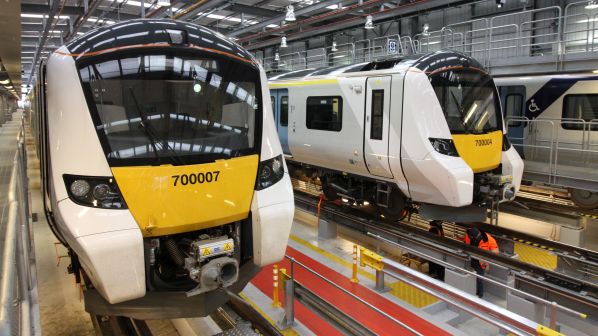Following the disruption and the findings from a subsequent independent ORR inquiry, ORR initiated a further investigation into whether GTR and Northern did everything reasonably practicable to provide appropriate, accurate and timely information to enable passengers to plan and make their journeys in both the run-up to the timetable introduction and during the disruption that followed.
ORR says it found that GTR took reasonable steps in making passengers aware of the planned changes prior to the new timetable. “However, following the timetable change on May 20, and in the eight weeks that followed, it is evident that GTR failed to appropriately balance the steps it was taking to improve services with the need for passenger information to an unacceptable extent and duration,” ORR said.
In particular:
- trains were permanently removed from the timetable but passengers were not clearly informed until several weeks later
- further trains were removed or cancelled on a daily basis leading to very short notice changes to the timetable and a severe lack of certainty for passengers up until the point of travel
- some trains were reintroduced but with insufficient time to input journey information into systems. These ‘ghost trains’ arrived at stations with staff and passengers unaware of their arrival or where they were expected to stop
- replacement buses were used on some routes but prolonged delays in providing information in journey planners meant many passengers weren’t aware that they were available, and
- inadequate internal communication often left frontline staff with little or no information to assist passengers in making their journey.
The effect of these failures left passengers with very little notice or certainty about whether trains that were running on one day would run or be the same the following day.
GTR now has 21 days to respond to the penalty notice before ORR makes a final decision on the fine.
Northern Investigation
A separate ORR investigation into Northern found that although in many cases passengers did experience inadequate information in the two weeks that immediately followed the timetable introduction, it had considered and subsequently took reasonable steps in these circumstances to give passengers appropriate, accurate and timely information both prior to and during the disruption.
An interim timetable introduced on June 4 stabilised service levels, improved performance, and enabled the provision of better information to passengers. In consideration of these findings no further action will be taken against Northern.
ORR’s investigation focused on whether GTR and Northern breached Condition 4 of their Statement of National Regulatory Provisions, which requires operators to provide “appropriate, accurate and timely information to enable railway passengers and prospective passengers to plan and make their journeys with a reasonable degree of assurance, including when there is disruption.”
ORR has also instructed all operators and Network Rail (NR) to review crisis management plans in light of these findings and to ensure that appropriate arrangements exist for assisting passengers with reduced mobility in times of disruption, planned and unplanned.
“The disruption experienced by many passengers as a result of the May timetable introduction was awful,” says Ms Stephanie Tobyn, ORR deputy director, consumers. “When disruption happens, poor quality information makes an already difficult and frustrating situation worse. The exceptional circumstances that followed the introduction of the timetable meant that providing perfect advance information for passengers was from the outset an impossible task and GTR’s overriding focus was on providing as much capacity as it could to meet customer demand. However, persistent and prolonged failures in information provision meant that passengers couldn’t benefit from the operational improvement it was trying to make.”

